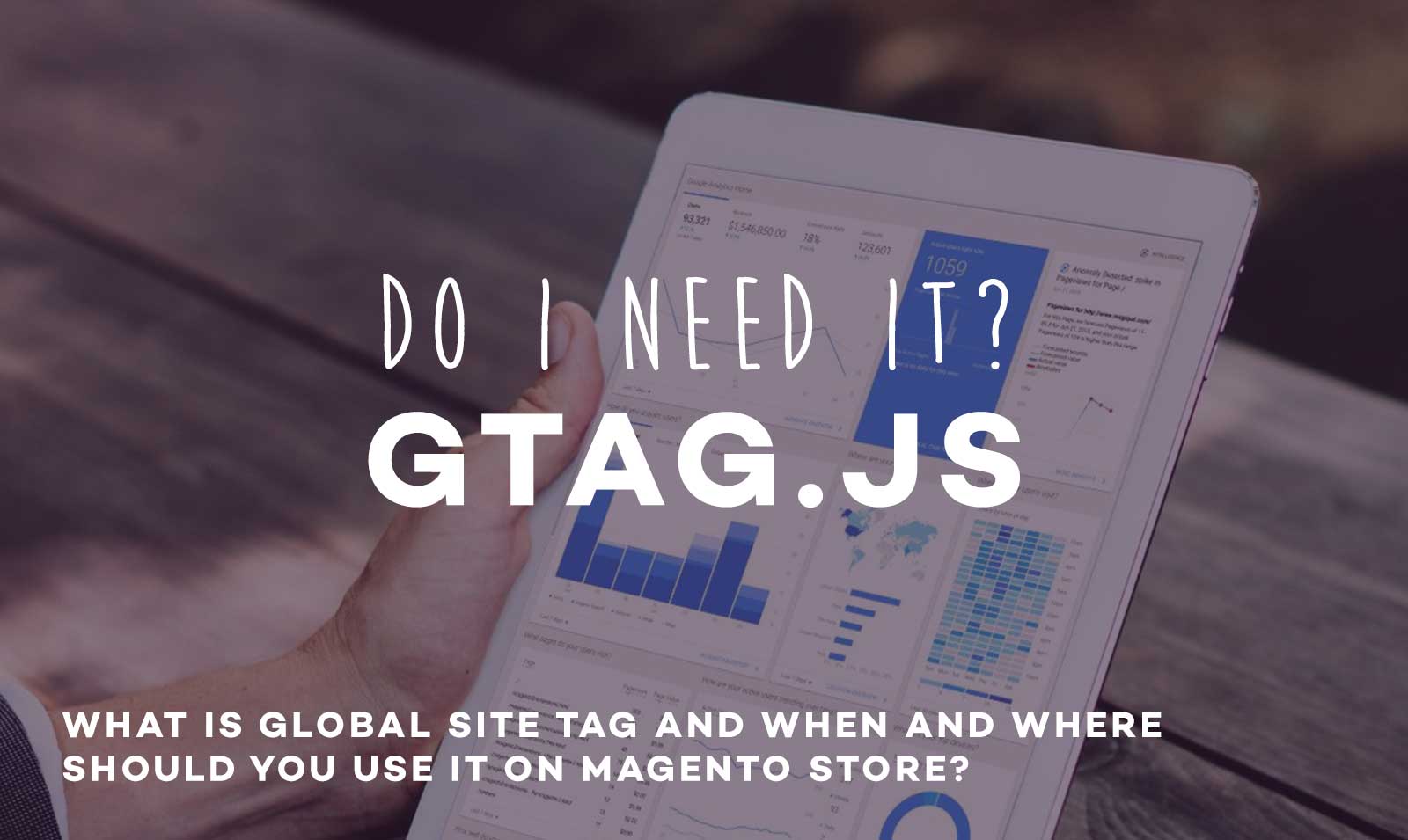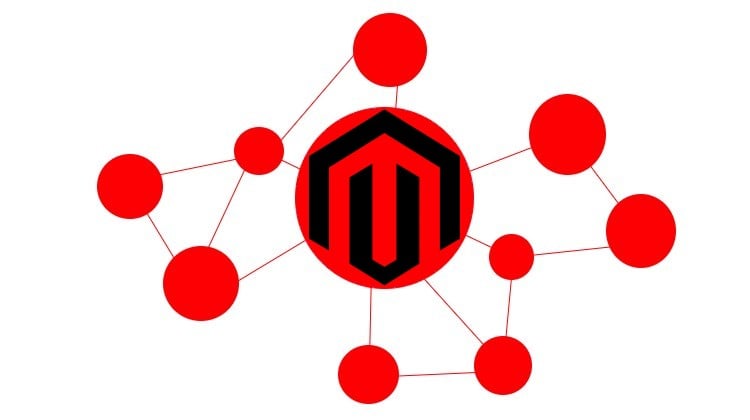
This article is written on the premise that you know a thing or more about marketing with Google tools and you are familiar with Universal analytics.
Being the most recent tracking code after the Global site tag, universal analytics is still used by some marketers, Magento store owners, and more.
Gtag.js is the latest tracking code by Google, however; like every new tool, the adoption rate is slow, as marketers have to learn about the tool and the advantage it offers over what they are used to.
If you’ve just learned about Gtag.js but do not know the specifics of the tracking code or why you should use it. This article should help clear things up so you can decide whether you need Gtag.js or not.
What is Gtag.js?
Also known as, Global site tag, Gtag.js is the latest code released by Google. It is designed to track and record all sorts of customer activity on a website for various Google marketing tools such as Google Adwords and Google analytics.
The launch of Gtag.js represents a significant shift in the way data is collected and sent to Google’s marketing and analytics tools simultaneously.
The global site tag is built on the same framework as the much older universal analytics (Analytics.js). It uses the existing Analytics.js library but works in a much different way that allows easy tracking and data reporting.
The innovation of the Global site tag is its ability to send data to all of your Google marketing and analytics tools. This way, you save the time and effort typically required to hard-code specific tags for tracking different user metrics on your store.
The benefits of using Global Site Tag
Bypasses Intelligent tracking protection
The most compelling reason for implementing Gtag.js on your web store is that it tracks users accessing your store through the Safari browser.
Some months ago, Apple announced it was rolling out intelligent tracking protection to Safari browsers. This meant that cookies and other tracking mechanisms used by websites would not work or have a limited effect on users who were accessing the web through a Safari browser.
For an e-commerce store owner using older analytics tools, intelligent tracking protection can cause inaccurate tracking reports.
To enhance tracking and avoid any errors, Google released the Global site tag. The Gtag.js can track conversions and store data of Safari users.
Gtag.js executes this function by setting new cookies on your domain, which will assign and save a unique identifier for a visitor or the Ad click that brought the visitor to your website.
Broad integration
Global site tag can be integrated not just with Google marketing products but also Google tools such as Google Ads and Google analytics.
Faster and easier to install
If the ability to implement tracking tags without the ramp-up time of setting up a tag management system appeals to you, then Gtag.js should be considered. You can implement and run the Global site tag without setting up a functional tag management system.
Easy to edit
Gtag.js codes can be modified directly in JavaScript without having to work with a separate interface.
More efficient conversion tracking
Google recommends global site tag for the enhanced tracking it offers. When properly implemented, this tool will help your remarketing and conversion tracking efforts.
According to cpcstrategy, if retailers using Google Tag Manager, Shopify, Magento, Big Commerce and more choose not to upgrade their sitewide tagging. It will lead to Google Ads under-reporting conversions.
Should I implement Gtag.js on my store?
Yes, you should implement Gtag.js for the list of benefits it offers. Also, it is the latest tracking code from Google. As such, it comes with many improvements and new features that are not available with Analytics.
Also, keep in mind that Google may stop supporting old tracking codes such as Analytics.js in the future.
To put things in perspective, here is a list of the main features of Gtag.js
- It allows you to implement new Google Analytics Universal tracking on your site
- It comes with different options provided by new Google universal tracking code
- Implements Google Adwords and Dynamic Remarketing Tracking
- Implements Google Optimize
- It works with sub-domains and multi-domain websites **
- It tracks “add to basket and remove from basket” data
- It supports Shopping Behaviour Report
- It supports Checkout Behaviour Report which measures Magento 2 checkout steps
- It supports Product List Performance Report
- It supports Product Performance Report
- It supports Sales Performance Report
- It supports Guest checkout functionality
- It captures product Impressions, add to cart & product clicks events on a category page
- It captures product Impressions, add to cart & product clicks events on a product page
- It captures product Impressions, add to cart & product clicks events on advanced search and search result pages
- It captures product Impressions, add to cart & product clicks events on related products
- It captures product Impressions, add to cart & product clicks events on cross-sell products
- It captures product Impressions, add to cart & product clicks events on up-sell products
- It captures refunds against the original transaction
- It measures complete checkout process including billing, shipping, shipping method, payment method and order review steps
- It captures promotion data with each purchase including promotion or coupon code
- It measures transactions with specified local currency
- This module can be completely disabled whenever required via system configuration in admin
Difference between Old GA tracking and New GA tracking
Other than their names, most of the difference between the old GA and the new GA lies in their mode and scope of tracking.
The new GA can track user activity for different actions across multiple pages on a website, on various devices. This data is sorted and sent to different Google products for marketing purposes.
On the other hand, the old GA cannot send multiple data to different Google products simultaneously. With old GA, you have to manage many tags for different products. This might be cumbersome and stressful if you don’t know how to implement tracking codes.
Instead of managing multiple tags for different Google product; it will be more efficient to have a single tracking code sending information to different Google marketing tools.
Beyond the apparent tracking advantage, the new GA offers users; it will more easily benefit from updates to tracking features and integrations. So making use of the new GA gives you access to the latest updates in customer tracking and marketing by Google.
How do I setup Gtag.js on my store?
Depending on your knowledge and level of experience, Gtag.js implementation and other marketing tools can be a plug and play process. Otherwise, the process of implementing Gtag.js can be too technical, or it may be a time sink for you. Whatever the reason; there are simple and easy solutions for implementing Gtag.js on your store or website.
For Magento store owners, a simple extension can help implement the Gtag.js on your store. With such an extension, the question of “how to install Gtag.js on your Magento 1 or Magento 2 store?” is answered permanently.
The Magento Google Global Site Tag (gtag.js) extensions allows you to install the new version of Google Universal Analytics Enhanced Ecommerce Tracking on your Magento store. It implements Enhanced E-commerce, Google Remarketing and Adwords tracking on your site.
If you run a Magento 1 store, you will find Scommerce-mage’s Magento 1 Gtag.js extension helpful.
On the other hand, if you run a Magento 2 Store, Scommerce-mage’s Magento 2 Global site tag extension can help you implement Gtag.js.
On the plus side, you can get free 60 days support and free upgrade from the date of purchase for any standard Magento site.
Installation service is also available with a minimal charge of £50 with 6 months free support and free upgrade for any standard Magento Site.
If you need any help with this extension or you want to enhance this extension to meet your business needs, please contact us and we will get in touch with you. And if we like your idea we might do the solution at discounted rate or for free.





